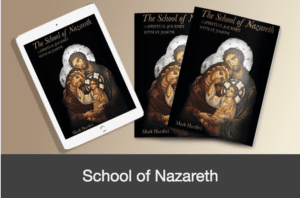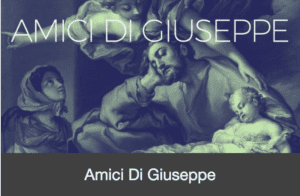Often times, the decisions of the people in the Old Testament honestly leave me baffled. The story that gets me every time is the account of the Israelites building the golden calf to worship (Cf. Exodus 32:3-8). Seriously? They waited for years while begging for God to set them free from the bondage of the Pharaoh in Egypt. God liberated his people in dramatic fashion with plagues, miracles and the parting of the Red Sea, and yet they respond by building a senseless idol? Can humanity really choose lowly idolatry after they have seen the hand of God in action? In modern times, do we as Christians even run the risk of falling into idolatry? I think it is safe to say that we have aligned with the Israelites in choosing “idols” over God at times in our lives.
“Put to death therefore what is earthly in you: fornication, impurity, passion, evil desire, and covetousness, which is idolatry” (Colossians 3:5). Scripture equates covetousness, which is another word for greed, with idolatry. In fact, anything we place above God in our hearts and minds can become an idol, even if it can be construed as a good thing. Nonetheless, Scripture places a bone-chilling emphasis on money as highlighted in the following verses:
No one can serve two masters; for either he will hate the one and love the other, or he will be devoted to the one and despise the other. You cannot serve God and mammon. (Matthew 6:24)
The eye of the covetous man is insatiable in his portion of iniquity: he will not be satisfied till he consumes his own soul. (Sirach 14:9)
The love of money is the root of all evil. (1 Tim 6:10)
It is safe to say that, in our culture, many people love money with greater emphasis and intensity than they love God. Once again, humanity has found another golden calf to worship. Unfortunately, this obsession with money has crept into most of our lives in one way or another. When you swim in the ocean, you start to smell like fish!
We impulsively think that money will bring happiness, peace and security. We assume that money will solve our problems and help us to do God’s work better. If we could just find a little more money!
When the Holy Family went to the temple once a year to offer their sacrifice, they offered a pair of turtledoves (Cf. Luke 2:24). This was the offering of a poor family (Cf. Leviticus 12:8). The Holy Family was not rich; rather, Jesus, Mary and Joseph were poor but not wanting. If you asked St. Joseph, he would tell you to substitute the name of Jesus for the word money in all of those beliefs. Jesus will bring you happiness. Jesus will bring your family peace and security. Jesus will solve all your problems. Jesus will help you to do God’s work better. If you could just get a little more Jesus!
It is certainly true that we have to work hard to earn money because we need food, shelter, and other essentials to provide for ourselves and our families. In reality, money itself is neither good nor bad. How we make it, how we spend it and how we place the notion of money in our hearts are of greater concern. I’ve heard it said, “You can have money, you just can’t let money have you.”
At the School of Nazareth the poverty of the Holy Family teaches us that money is not our ultimate answer. The wisest, most fruitful, most blessed and most inspiring family in human history did not have a large bank account and significant net worth. They were content with what they had. They had Jesus.
Personal Reflection:
Do you have an insatiable desire for wealth and material possessions? Do you worry more about your financial state or your spiritual state of life?
And he said to them, “Take heed, and beware of all covetousness; for a man’s life does not consist in the abundance of his possessions … he who lays up treasure for himself, and is not rich toward God.” And he said to his disciples, “Therefore I tell you, do not be anxious about your life, what you shall eat, nor about your body, what you shall put on. For life is more than food, and the body more than clothing. Consider the ravens: they neither sow nor reap, they have neither storehouse nor barn, and yet God feeds them. Of how much more value are you than the birds! And which of you by being anxious can add a cubit to his span of life? If then you are not able to do as small a thing as that, why are you anxious about the rest? Consider the lilies, how they grow; they neither toil nor spin; yet I tell you, even Solomon in all his glory was not arrayed like one of these. But if God so clothes the grass which is alive in the field today and tomorrow is thrown into the oven, how much more will he clothe you, O men of little faith! And do not seek what you are to eat and what you are to drink, nor be of anxious mind. For all the nations of the world seek these things; and your Father knows that you need them. Instead, seek his kingdom, and these things shall be yours as well. Fear not, little flock, for it is your Father’s good pleasure to give you the kingdom. Sell your possessions, and give alms; provide yourselves with purses that do not grow old, with a treasure in the heavens that does not fail, where no thief approaches and no moth destroys. For where your treasure is, there will your heart be also.” (Luke 12: 15 – 34)
Heavenly Father, have mercy on us when we place worldly things in front of you. Increase our faith in order to trust in your fatherly care for our needs. Help us to learn from St. Joseph that if we have Jesus, we have enough. Give us this day our daily bread. Support us as we provide sufficiently for our families. If we have surplus, teach us to use it according to your holy will.
St. Joseph, take me to Nazareth and train me in your ways. Help me to exclude all evil from my heart and my home. Amen.


